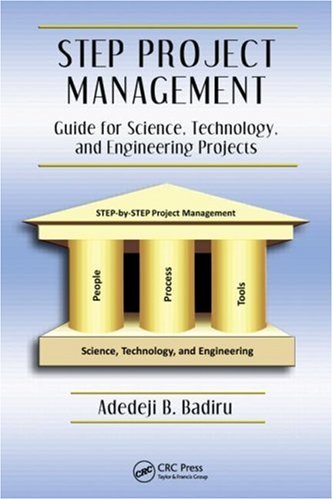

Most ebook files are in PDF format, so you can easily read them using various software such as Foxit Reader or directly on the Google Chrome browser.
Some ebook files are released by publishers in other formats such as .awz, .mobi, .epub, .fb2, etc. You may need to install specific software to read these formats on mobile/PC, such as Calibre.
Please read the tutorial at this link: https://ebookbell.com/faq
We offer FREE conversion to the popular formats you request; however, this may take some time. Therefore, right after payment, please email us, and we will try to provide the service as quickly as possible.
For some exceptional file formats or broken links (if any), please refrain from opening any disputes. Instead, email us first, and we will try to assist within a maximum of 6 hours.
EbookBell Team

4.4
42 reviewsWhile the project management body of knowledge is embraced by disciplines ranging from manufacturing and business to social services and healthcare, the application of efficient project management is of particularly high value in science, technology, and engineering undertakings. STEP Project Management: Guide for Science, Technology, and Engineering Projects presents an integrated, step-by-step approach to managing projects in these complex areas, using the time-tested concepts, tools, and techniques of the Project Management Body of Knowledge (PMBOK®).
STEP is an acronym for Science, Technology, and Engineering Projects, and also serves as a mnemonic reference to the step-by-step approach of the book.
This volume takes an approach that combines managerial, organizational, and quantitative techniques into a logical sequence of project implementation steps. The book begins by exploring the special methodology imperative for managing these types of sophisticated projects. It then delineates the major steps involved in project integration. The author discusses the management of scope, time, cost, quality, human resources, communications, risk, and procurement. Then, using a compelling case study that profiles the errors leading to the 1986 Challenger disaster, the book examines how flaws in decision-making, failure to consider all factors, lack of communication, and inappropriate priorities can lead to catastrophe.
In today’s fast-changing IT-based, competitive global market, success can be even more elusive and hard won. Effective project management in all facets of operations can give an enterprise the advantage it seeks. In this book, the author’s direct writing style, designed to appeal to busy professionals, conveys the complex concepts of high-stakes project management in a simple, efficient manner. He provides a general framework that shows what needs to be done to manage complex projects, using steps that are flexible, expandable, and modifiable.